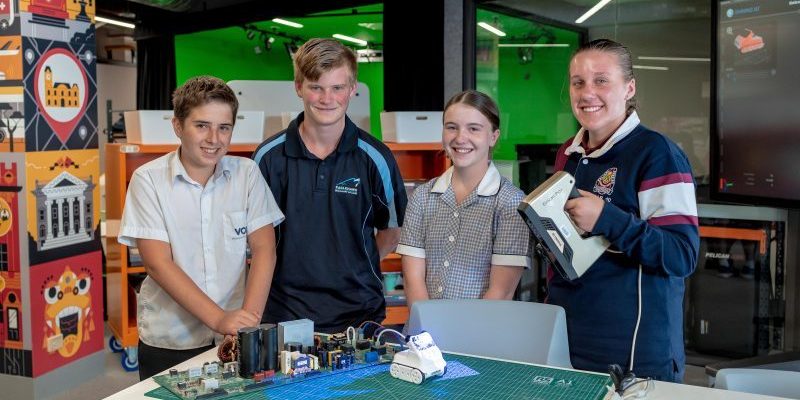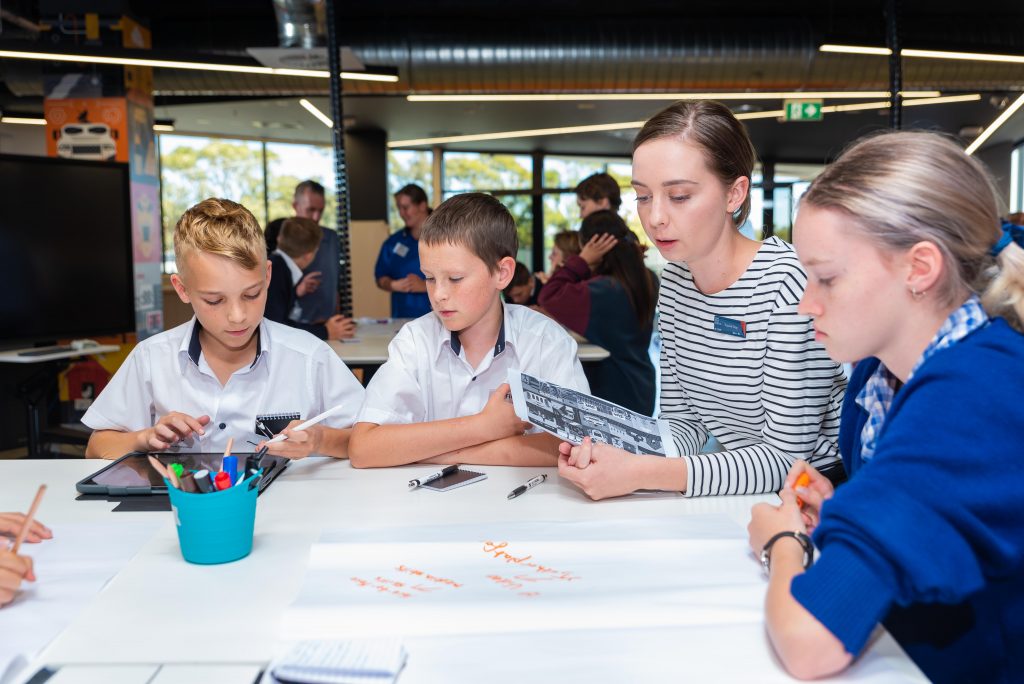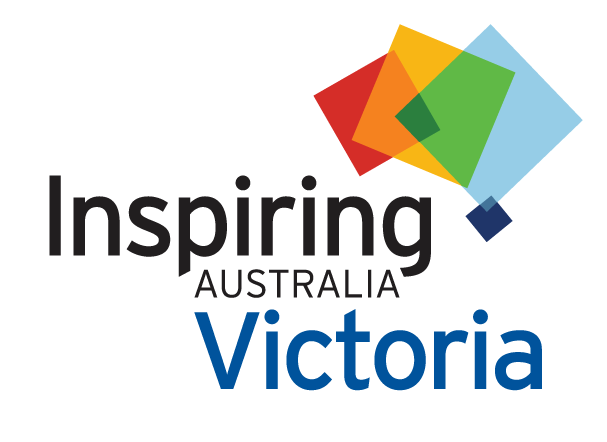Augmenting the Tourist’s Reality

Adding an extra dimension of experience to gastronomy and tourism in Bendigo
By Catriona Nguyen-Robertson
The COVID-19 outbreak has caused economic disruption to many sectors including tourism and hospitality. The pandemic hit Victoria’s beloved cafes, bars, and restaurants hard. Following the closure of their doors to customers, many businesses will be trying to bounce back long after restrictions are fully lifted. It is no different in Bendigo.
Bendigo was listed as a UNESCO Creative City of Gastronomy in October last year – a recognition of the city’s creativity and gastronomy on the world stage. It is one of 246 cities around the world (including Melbourne, Geelong, and Ballarat) to be admitted into the UNESCO Creative Cities Network. The hospitality industry is central to this creativity – and Bendigo Tech School has developed a way for the youth of the region to use their creativity to understand and engage with its recovery.
Secondary school students use augmented reality (AR) to make a big difference to the way people experience hospitality and tourism. Student teams will work with industry partners (e.g. local restaurants) to design and pitch a solution leveraging AR. This builds on an existing program in which students designed AR campaigns to help tourists better discover Bendigo.
AR provides an extra layer of experience when people interact with the real world by providing additional information through a device. You may already encounter AR in your daily life. The Nintendo mobile game, Pokémon Go, is an example of an interactive gaming experience as users hunt for Pokémon characters in their physical surrounds using GPS data. Perhaps a more common use of AR is for virtual tours of properties for rent or sale, and more recently art galleries, or a virtual “try before you buy” option when shopping online for items such as glasses. Filters on Snapchat, Instagram, and similar camera-based apps also provide an additional layer to the reality captured through the lens of a camera.
The two-day program at Bendigo Tech School begins with an up-skilling session in a number of software programs that are involved in making AR. Students get hands on, learning how to use a green screen, graphic design software, and the AR creation program, ZAPworks, all of which they use to produce their own AR experiences. Choosing their “client” (e.g. a restaurant or an undiscovered gem in the town to showcase as a tourist attraction), students are encouraged to think about consumer needs – what would positively add to the tourist experience, and how to make information and places more accessible to visitors and locals.
By day two, the students’ ideas start coming to life as they design their campaigns. They can be as simple as adding fun graphics, providing easy links to websites or social media channels for more information, or short video clips that pop up based on a physical tracker. Some ideas designed by students include making restaurant menus more engaging and informative, or adding videos of themselves in different locations expressing why they like the place or why tourists should visit that would pop up when the user is in the location. One group designed a language barrier solution for information and instructions at Central Deborah Gold Mine. As each member of the group spoke a different language other than English, created an AR experience to provide tourists with the opportunity to learn about the goldmine’s rich history more in depth in the language of their choice.

Bendigo Tech School enables some groups to further refine their ideas and have them put into action by brokering connections between schools and businesses, students can then get experience communicating with their actual tourism client. They are offered support to remain involved with the development of their ideas to hopefully see their AR solution become a reality in their local community. ‘This helps the students to feel that the work they do is important and seen, giving them a sense of agency and making them more engaged,’ says Robbie Philpott, Head of Programs.
Bendigo Tech School encourages students to tell the story of Bendigo in their own unique way. The Design Thinking Process undertaken in this program fosters students’ creativity, innovation and problem-solving skills. The end product is essentially a “gamified” guided tour of Bendigo for the tech savvy tourist, as well as the development of many soft skills for the students to take away.

